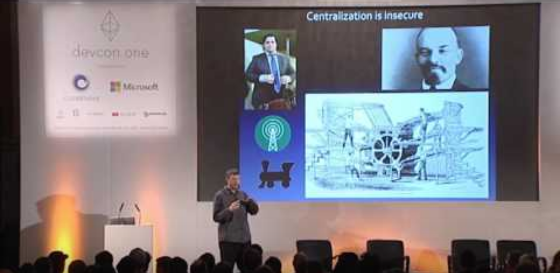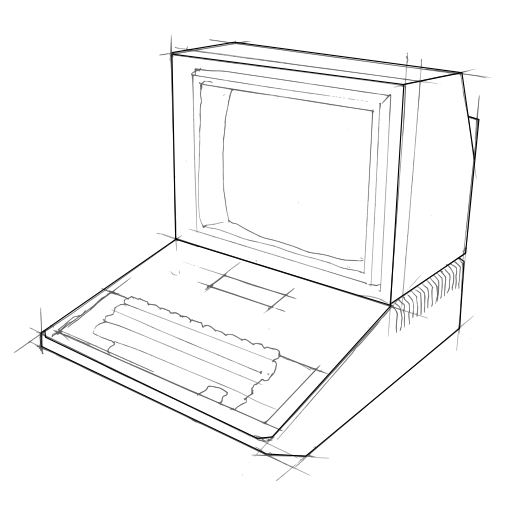In November 2015 Nick Szabo gave a talk on the history of the blockchain which was dense with useful ideas.

Here are some notes I took on his talk:
-
Philosophical inspiration to Cypherpunks who invented Cryptocurrency:
- Ayn Rand: Galt's Gulch - independence from corrupt institutions.
- Tim May: "protect yourself with cryptography" (cyber Galt's Gulch.)
- Friederich Hayek: Institutions of property, contracts, money are actually important to human freedom.
-
Use computer science to minimize vulnerability to strangers.
-
Non-violently enforce the good services of institutions.
-
"Try to secure as much as possible" not just communication.
-
Cryptography: only secures communications from 3rd parties.
-
David Chaum: let's apply this to money too.
-
Centralization problem remained in digital cash startups.
-
Bad assumptions in computer security: trusted third parties like certificate authorities are secure.
-
Trusted third parties are security holes.
-
Centralization is insecure.
-
E.g. Communists were able to get stranglehold with just control of railroads, newspapers, radio.
-
Gold is insecure
- Spanish looted Aztec gold, pirates looted Spanish gold.
- Part of end of gold standard was German U-boat threat to British gold transportation.
- Franklin Roosevelt's government confiscated gold.
- In modern times xray machines detect gold easily.
-
Decentralization per computer science is much more automated & secure than traditional security.
-
CS decentralization can only replace small fraction of traditional security but with very high cost savings.
-
Traditional security isn't the protocol itself, requires strong external law enforcement.
-
Computer security can be secure across national borders instead of siloed inside jurisdictions.
-
Cryptocurrency helps solve this through decentralization.
-
Separation of duties: several independent people to perform a task to get it done.
-
Each node as independent as possible.
-
E.g. crude measure of independence: geographic diversity of nodes.
-
Number of nodes is only a proxy measure of decentralization.
-
Smart contract:
- Long lived process or "distributed app".
- Acts like a contract.
- Performance, verification etc.
- Generally 2 parties + blockchain (replacing TPP).
-
Wet code = traditional law. Dry code = smart contract.
-
Law is subjective, enforced with coercion, flexible, highly evolved.
-
Smart contracts are mathematically rigorous, cryptographically enforced, rigid, very new.
-
Law is jurisdicionally siloed, and expensive to execute.
-
Smart contracts are super-national & independent and low cost.
-
Seals in clay/wax were important when writing was invented: signature + tamper evident.
-
Modern seals at e.g. crime scenes: sealing door, evidence bag with numeric identifier.
-
Blockchain can keep secure log with both semantics (serial number) and proof of evidence (photo hash).
-
Put proof of evidence on blockchain as well as semantic reference for contract code to interface with.
-
Can secure physical spaces with same mechanism.
-
Proplets: blockchain can tell them which keys have which capabilities.
- For almost any valuable property that can be controlled digitally
- Example: Auto-repo collateral upon contract breach.
- Example: creditors without access to offshore oil rig used as collateral.
-
Recent project:
- Trust minimized token: secure property titles, colored coins. Securing transfer of ownership.
- Trust minimized cash flows (dividends, coupons, etc).
-
Idea: social networks for blockchains. Execute payment swaps & smart contracts after linking social accounts together.
-
Let's try to think about security more broadly instead of only encryption.
-
Let's try to protect everything that's important to us, without centralization.
